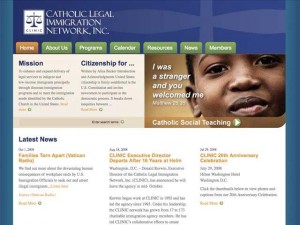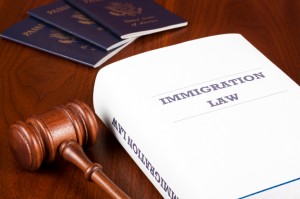For our Ford Scholars project, Professor Jamie Kelly and I have been researching the constitutional protections afforded to litigants in immigration proceedings in the United States. The project began by questioning why defendants in immigration proceedings, unlike defendants in other areas of U.S. law, are denied the right to appointed legal counsel. Our preliminary research revealed a quick and unsatisfactory answer to this question. Immigration proceedings – whether deportation, removal, naturalization, or other – are classified as civil matters and, as such, are not subject to the constitutional protections guaranteed in criminal proceedings. Therefore, the right to legal representation is but one of several constitutional protections denied to those facing immigration proceedings – standard constitutional protections against retroactive laws and double jeopardy also do not apply. While these restrictions may be justifiable in other civil matters, immigration proceedings seem to be importantly different. Although numerous authors have criticized this denial of standard constitutional protections by claiming that immigration proceedings ought to be understood as criminal rather than civil matters, Professor Kelly and I plan to use the rule of law as the standard of criticism in our argument against the denial of constitutional protections to those facing immigration proceedings. Therefore, in the concluding weeks of the project, both Professor Kelly and I will be surveying literature on the rule of law.
Another aspect of our research is determining if any Department of Justice accredited non-profit religious, charitable, or social service organizations are operating in Duchess County to provide legal counsel to defendants in immigration court proceedings. Although the DOJ has accredited numerous organizations to serve this purpose throughout the country and throughout New York State, our preliminary research has revealed that none seem to be operating in Poughkeepsie or the surrounding area. In the final weeks of the project, we will continue to explore what legal resources are available to immigrants living in Duchess County.

The Catholic Legal Immigration Network, Inc. (CLINIC) is a prominent organization dedicated to promoting and protecting the rights of immigrants. The organization has programs throughout the country and several throughout New York state. However, CLINIC is noticeably absent in both Poughkeepsie and the surrounding community.
-Marlena Santos ’14

